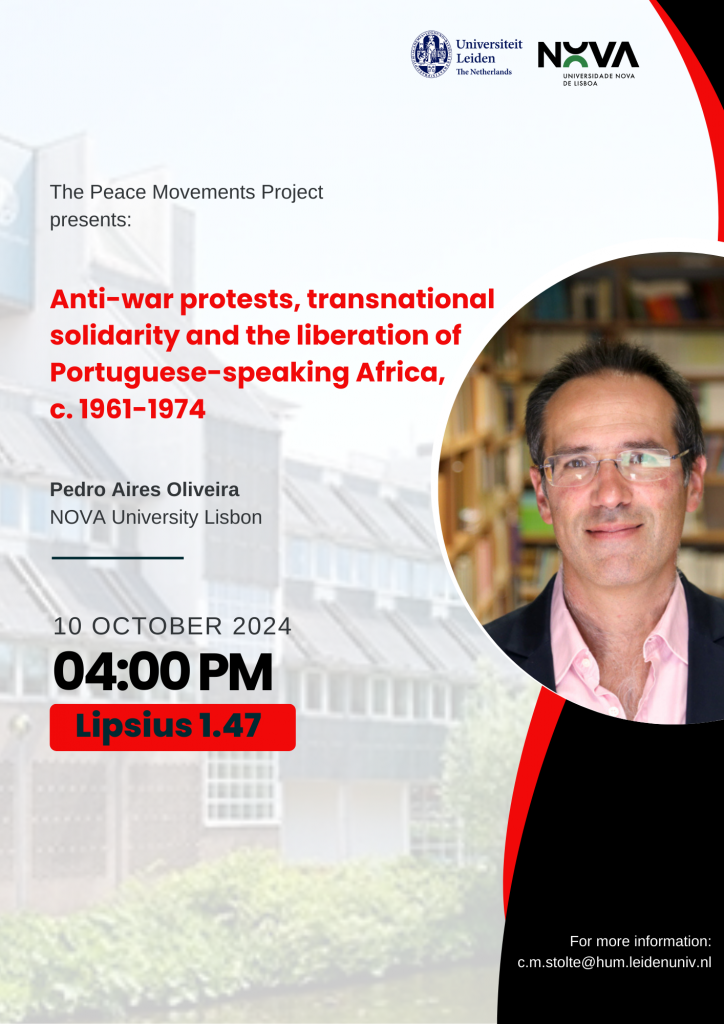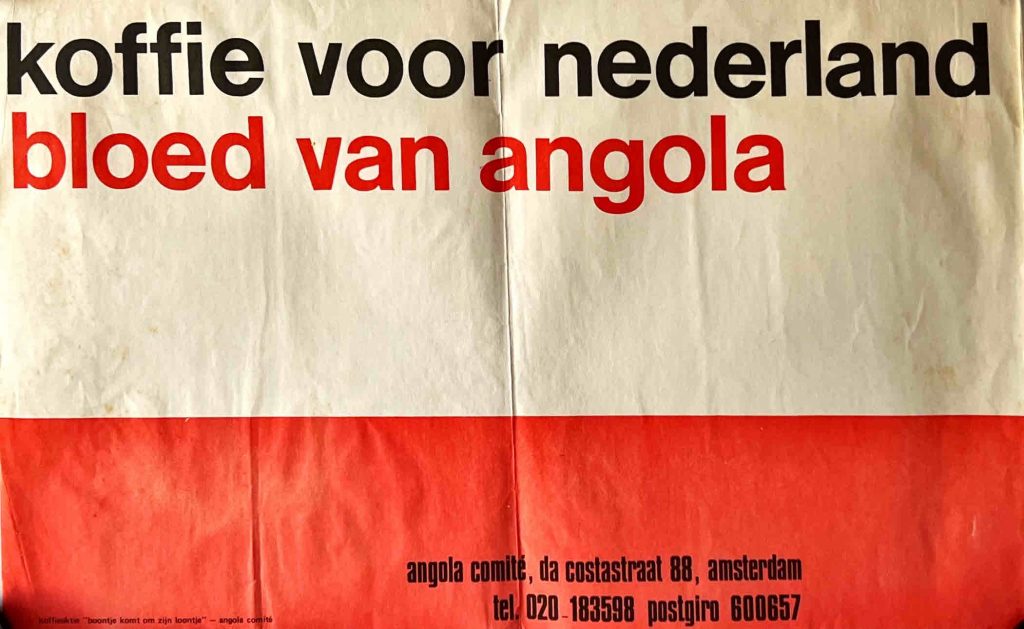Pedro Aires Oliveira visited the Peace Movements Project on an Erasmus Teaching Mobility, on exchange from the Institute of Contemporary History at NOVA University (Lisbon, Portugal). His expertise on anti-war and solidarity movements during the decolonization of Portuguese-occupied Africa is of great interest to us. As our own research projects deal with peace movements and decolonization from British, French, Dutch, and Soviet Empire, Portugal is a relative blind spot. We compared notes on histories of conscientious objection to military service, international solidarity, and (colonial) state responses. In particular, we talked about the consequences – to peace movements and specific peace issues – of different decolonization processes proceeding on different timelines.

In his lecture, which functioned as a “soft-launch” for the Peace Histories Seminar Series which will kick off next semester, Pedro provided an overview of the varied protests, campaigns and civic mobilizations that came about as a reaction to Portugal’s refusal to come to terms with self-determination in its colonial territories in Africa. In particular, Pedro covered the initiatives and movements that mushroomed in several Western European countries as well as in several nations which were particularly committed to the dismantling of colonialism in the aftermath of the 1955 Bandung Conference, and well into the 1960s. He looked at NGOs and networks that cooperated closely with the liberation movements of Portuguese-speaking Africa and demonstrated how they were able to impact the agendas of key international organizations, as well as influence the public opinion in many countries around the world. Needless to say, as in the morning, special attention was paid to the ways in which Cold War realities offered both constraints and opportunities to these campaigns.

Pedro’s lecture was attended by students and colleagues from History, African Studies and Area Studies. One of the most poignant aspects of his presentation was the visual history told by solidarity campaigns. Their use of images in order to raise awareness of the events taking place during the liberation of Portuguese-speaking Africa varied from photos with deliberate shock-value to designs of chilling simplicity. Below is one of Pedro’s examples of the latter. In the Netherlands, the Angola Committee, founded in 1961, used the poster above. Translating as “coffee for The Netherlands, blood of Angola”, the poster’s simple colors reflect the message the poster’s words convey. The Angola Committee itself was transformed into the KZA (Committee on Southern Africa) after the independence of Angola and Mozambique.